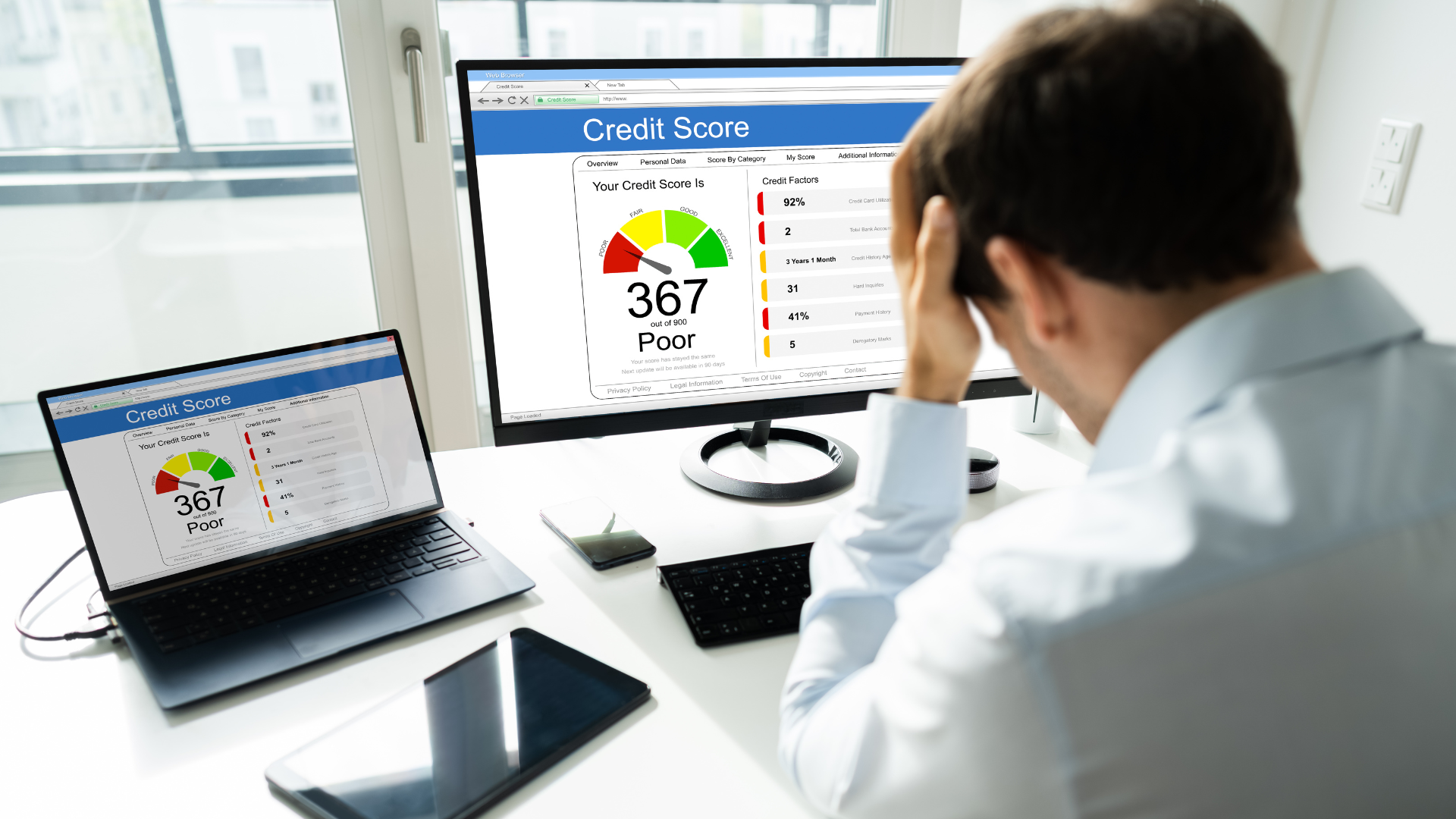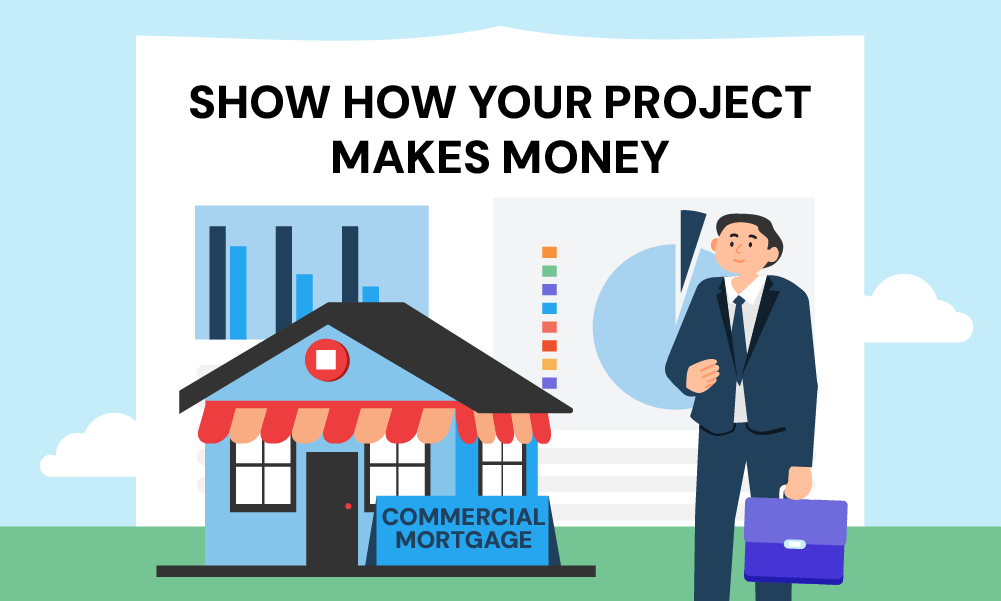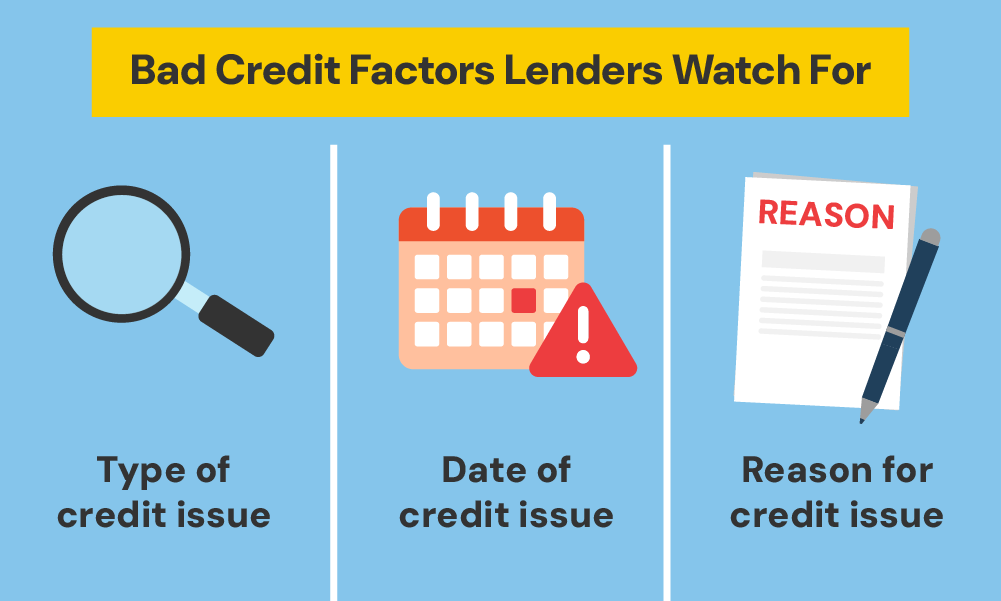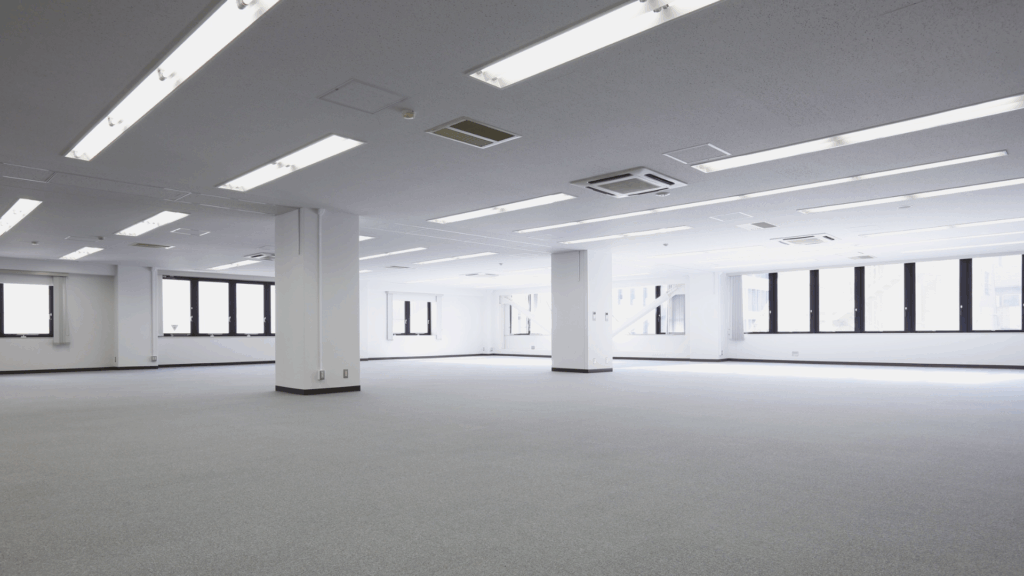- Is a Commercial Mortgage Possible with Bad Credit?
- How Can You Get a Commercial Mortgage with Bad Credit?
- How Are Your Finances Right Now?
- What’s Your Commercial Property or Project All About?
- How Serious Are Your Bad Credit Issues?
- When Did Your Bad Credit Occur?
- How Have You Structured Your Mortgage Application?
- Which Lender Should You Approach?
- Can You Remortgage a Commercial Mortgage with Bad Credit?
- The Bottom Line
How To Secure Commercial Mortgages With Bad Credit?

Stressed about your bad credit?
If you’re worried that your credit score might stop you from getting a commercial mortgage, there’s good news.
Certain lenders might look beyond your credit history, which gives you a chance. This doesn’t mean your credit file isn’t important—it is. However, lenders want to know how you plan to repay the loan.
They’ll check on several other things – your income, business plan, and overall mortgage application. Learning about these factors helps you get ahead of the game. And improve your chances of getting a commercial mortgage.
This article shows what makes your application stronger and how you can show lenders you’re serious about your business.
In short, we’ll cover everything you need to know about commercial mortgages with bad credit.
Is a Commercial Mortgage Possible with Bad Credit?
Yes, it’s possible to get a commercial mortgage even with bad credit in the UK.
But this doesn’t mean it’s easy or cheap.
Bad credit mortgage lenders usually ask for higher interest rates and bigger deposits. Sometimes, they also want extra security such as an asset you own.
Plus, if you’re a company director, you might have to promise to pay back the loan yourself if your business fails to do so.
However, it’s not all bad news. Every lender is different and some might still consider the profitability of your business than your credit issue.
It’s best to consult a specialist commercial broker to help you with your case. They can review your financial situation and offer you personal advice about your options.
How Can You Get a Commercial Mortgage with Bad Credit?
Your chances of getting a commercial mortgage with bad credit depends on several things:
- How your finances are doing right now
- What your commercial property or project is all about
- How serious your bad credit issues are
- When your bad credit happened
- How you’ve set up your mortgage application
- Which lender you decide to talk to
We’ll cover all these points in this article to give you a clearer picture of your options and share some helpful advice.
How Are Your Finances Right Now?
It’s important to look at your current financial health because lenders will assess your ability to repay the loan. They will check on two things:
- How much money you have, and
- How you handle it.
To check this, they will ask for proof of income such as financial statements, bank statements, tax returns (SA302), and other key business accounts.
Also, they will request for your credit history. This tells your lender how you manage your finances and debts.
It’s interesting to note that having a good credit score doesn’t always mean you have a high income, and the reverse is also true. You might have had some credit issues in the past but now have a steady income
This is important because some lenders are more interested in how much money your business could make in the future rather than focusing on past credit problems.
Your financial situation is unique to you. Lenders will look at your income and why you need the loan. They want to understand the full story.
So, when you’re putting your application together, being clear and honest about your income, your spending, and how you’re dealing with any debt is crucial.
It’s important to show that you’re doing your best to improve your financial situation and your business project has good potential.
What’s Your Commercial Property or Project All About?
What you’re planning to do with it is crucial.
Lenders aren’t just giving money to you; they’re backing your business idea.
A solid business plan that clearly shows your vision, how you’re going to make money, and your research into the market can really sway a lender’s decision.
The kind of property you’re looking at—whether it’s a shop, an office, a warehouse, or something else—matters too.
Each type comes with its risks and potential rewards that lenders will think about.
You need to highlight what makes your project special, how it will stand out in the market, and how you expect it to do financially.
A well-thought-out plan shows you understand where your project fits in the big picture. This can be highly favourable in your mortgage application.
Note that all kinds of commercial ventures, even those like buy-to-let properties, offices, or event spaces, can get financing, even with bad credit.
How your project can make money is important.
If you’re not sure about the numbers, getting advice from a specialist before you apply is a smart move. They can help you ensure your project’s financials make sense to the lenders.

How Serious Are Your Bad Credit Issues?
Lenders want to know the gravity of your bad credit issues when applying for a commercial mortgage.
It’s important to realise that not all credit issues carry the same weight.
Small issues like missing a credit card payment a few times might not worry them too much. But big problems, such as not paying back a loan (defaulting) or going bankrupt, make them think twice before lending you money.
For example, being a few days late on a utility bill is minor. However, having a mortgage in default or filing for bankruptcy are major issues that can seriously affect your chances of getting a new mortgage.
Each of these problems tells lenders how risky it might be to lend you money.
To improve your situation, you can start by fixing smaller credit problems and explaining any big ones clearly.
Show that you’re now handling your money better, which can make lenders more comfortable with offering you a mortgage.
When Did Your Bad Credit Occur?
The timing of your bad credit matters a lot.
The fresher your credit issues, the tougher it might be.
Issues that happened very recently, like last year, are more concerning to lenders than older issues.
Generally, credit problems more than six years ago might not even show up on your credit report anymore.
For instance, if you had a debt management plan set up in 2018, it’s less likely to affect your application than a similar issue from last year.
Lenders see recent issues as a sign of how you’re doing with money right now.
You should also be ready to talk about why you had trouble with finances before.
Maybe you lost your job or had big medical bills. Telling lenders about these things can help them see you’re in a better place now.
Before you apply, it’s a good idea to check your credit report. This way, you know exactly what lenders will see.
Sometimes, you might find your credit isn’t as bad as you thought. And checking your credit doesn’t hurt your score.
You can access your file for free from these agencies – Experian, Equifax, and TransUnion.

How Have You Structured Your Mortgage Application?
When you’re putting together your mortgage application, think of it as telling your financial story. To make it a good one, here’s what you need to do:
- Fill in every bit of the form carefully.
- Double-check your credit report for mistakes before applying.
- List all your income sources to show you can afford the mortgage.
- If it’s for a business property, make sure you’ve got a detailed business plan.
- Organise your documents clearly so lenders can easily understand your situation.
Getting all this right matters a lot. It tells lenders you’re serious and helps them see you’re on top of your finances.
Now, for the bit we might have missed: Working with a specialist mortgage broker can make a difference, especially if your credit isn’t great.
These experts know how to put your application together so it ticks all the boxes for lenders.
They deal with these kinds of applications all the time and can even talk to the people making the decisions if there’s something not quite right.
A commercial mortgage, especially with bad credit, can be tricky. So having a broker on your side can save you a lot of hassle and improve your chances of getting that mortgage.

Which Lender Should You Approach?
There are many lenders out there, like ABC Finance, Barclays, HSBC, West One Loans, Landbay, and Royal Bank of Scotland, who are ready to consider your application for a commercial mortgage.
Each has its specialities, including some that are more open to working with people who have bad credit.
Choosing a lender who’s comfortable with bad credit can work in your favour.
They’re used to looking beyond credit scores and understanding the bigger picture of your business proposition.
After all, getting a commercial mortgage with bad credit isn’t just about convincing someone to lend you money; it’s about showing them that investing in your project makes good business sense.
Here’s how you can start:
- Look at what each lender offers and their requirements.
- Consider if they have experience with businesses or properties like yours.
- Think about reaching out to a mortgage broker for advice. They can match you with lenders who are a good fit for your situation.
Can You Remortgage a Commercial Mortgage with Bad Credit?
Yes, remortgaging a commercial property with bad credit is possible, but be ready for a few hurdles along the way.
When you have bad credit, fewer lenders might be prepared to consider your application. This can lead to offers with higher interest rates or more demanding terms.
It’s important to understand this from the start so you can make informed decisions.
Also, don’t rush into accepting the first offer you come across. Shop around to see better options that fit in with your situation.
The Bottom Line
Even if your credit isn’t perfect, don’t give up.
There are ways to work around bad credit when you’re looking for a commercial mortgage. It’s all about taking steps to improve your situation and not being afraid to ask for help.
Getting advice from professionals who understand the ins and outs of commercial mortgages, especially with bad credit, can be a game-changer.
They know what lenders are looking for and can guide you to make your application stronger.
To boost your chances of getting approved, it’s crucial to be persistent.
Keep working on your financial health and gather all the information you need to make a compelling case to lenders.
If you’re ready to take the next step, reach out to us. We’ll connect you with a specialist commercial broker who’s experienced in dealing with bad credit.
Get Matched With Your Dream Mortgage Advisor...

Frequently asked questions
Can I get a commercial mortgage if I don't meet regular lending criteria?
Yes, non-status commercial mortgages exist for cases like yours. They’re meant for when usual lending rules don’t quite fit your situation. But remember, these lenders aren’t covered by the Financial Conduct Authority (FCA), so you don’t get the same protections as with regulated lenders.
It’s worth mentioning that our advisors focus on helping you find regulated specialist lenders. They might also offer alternative options that better protect you and still get the best possible outcome.




